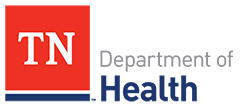 Nashville, TN – The Tennessee Department of Health is working with the United States Department of Agriculture to help prevent rabies by distributing oral rabies vaccine for wild raccoons along Tennessee’s borders with Alabama, Georgia, North Carolina, and Virginia. The annual baiting program administered by USDA’s Animal and Plant Health Inspection Service, Wildlife Services, will begin in Tennessee on October 1st, 2021.
Nashville, TN – The Tennessee Department of Health is working with the United States Department of Agriculture to help prevent rabies by distributing oral rabies vaccine for wild raccoons along Tennessee’s borders with Alabama, Georgia, North Carolina, and Virginia. The annual baiting program administered by USDA’s Animal and Plant Health Inspection Service, Wildlife Services, will begin in Tennessee on October 1st, 2021.
Coated sachet baits, which are coasted with an oily, fish-scented substance to attract raccoons, containing the RABORAL V-RG® or ONRAB oral rabies vaccine (ORV) will be distributed across portions of Bradley County, Carter County, Cocke County, Greene County, Hamilton County, Johnson County, Marion County, McMinn County, Monroe County, Polk County, Sullivan County, Unicoi County, and Washington County targeting raccoons and other wildlife.
These baits will be distributed by low-flying airplanes and helicopters. The aerial bait drop is expected to last about three weeks. Each bait is marked with a toll-free number (1.877.722.6725) for people to call for assistance or information if they find or come in contact with a bait.
The oral rabies vaccine will be distributed on the following schedule:
- October 1st– 13th: Hamilton and Bradley counties
- October 7th– 11th: Greene, Hawkins, Sullivan, Carter, Unicoi and Washington counties
- October 4th –9th: Carter, Cocke, Greene, Hawkins, Johnson, Sullivan, Unicoi and Washington
counties - October 9th –15th: Bledsoe, Bradley, Hamilton, Marion, McMinn, Meigs, Monroe, Polk, Rhea and Sequatchie counties
Although the vaccine products are safe, the USDA Wildlife Services program has issued these precautions:
- If you or your pet finds a vaccine bait package, confine your pet and look for other baits
in the area. Wear gloves or use a towel and toss baits into a wooded or fencerow area.
These baits should be removed from where your pet could easily eat them. Eating the
baits won’t harm your pet, but consuming several baits might upset your pet’s stomach. - Do not try to remove an oral rabies vaccine packet from your pet’s mouth, as you could
be bitten. - Wear gloves or use a towel when you pick up bait. While there is no harm in touching
undamaged baits, they have a strong fishmeal smell. Wash your hands thoroughly with
soap and water if there is any chance the vaccine packet has been ruptured. - Instruct children to leave baits alone.
- A warning label on each bait advises people not to touch the bait, and contains the rabies information line telephone number.
For more information on rabies prevention or the oral rabies vaccine program, call the USDA Wildlife Services toll-free rabies line at 1.866.487.3297 or the Tennessee Department of Health at 615.741.7247. You may also find rabies information on the USDA website at www.aphis.usda.gov/aphis/ourfocus/wildlifedamage/programs/nrmp/ct_rabies_vaccine_info and TDH website at https://www.tn.gov/health/cedep/zoonotic-diseases/rabies.html.
The Tennessee Department of Health encourages people to enjoy wild animals such as raccoons, skunks, and bats from a distance. The Centers for Disease Control and Prevention has a website to help educate children about rabies. Visit the site at www.cdc.gov/rabiesandkids/.
The mission of the Tennessee Department of Health is to protect, promote and improve the health and prosperity of people in Tennessee. Learn more about TDH services and programs at www.tn.gov/health.



